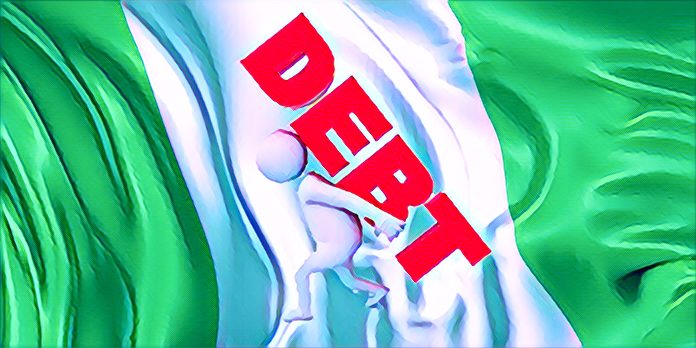KEY POINTS
- In the opening four months of 2025, Nigeria paid out $2.01 billion in interest on its debt.
- The international agency expects wider budget deficits in 2025 and 2026.
- Senior officials are pondering the widespread use of debt and dependence on loans by Nigeria.
The year-on-year growth of debt servicing costs reached 49.2 percent, according to data provided by the Central Bank of Nigeria (CBN).
Get-togethers brought in $2.01 billion from January to April 2025, while similar events brought in $1.34 billion during the same period in 2024.
Revenue limits are leading to greater fiscal strain
The fact that Nigeria’s debt service payment has gone up sharply shows that the economy is bearing the pressure of ongoing problems with foreign exchange and a low revenue level. Experts argue that managing government debt obligations becomes difficult if the authorities do not increase their income.
IMF quotes rising fiscal deficit for Nigeria’s debt service payment
According to the International Monetary Fund, Nigeria’s fiscal shortfall is expected to increase to 4.5 percent of the national economy in 2025 and 2026, from 3.4 percent in the previous year. It reveals the increasing difference between public spending and the money government collects.
Researchers have alerted to the growing risk of borrowing and overloaded debt
Experts say that depending heavily on debt to balance the budget could weaken Nigeria’s finances. If interest rates go up or investor trust falls, it could make the work of servicing debt more difficult in the coming years.
The Central Bank of Nigeria (CBN), according to its latest International Payments report, says that insufficient foreign exchange and unstable income sources are weighing down national finances. It is consistent with prior statements from the IMF that indicated the risks to Nigeria’s debt sustainability, as a result of large fiscal deficits.
The International Monetary Fund predicts that in 2025 and 2026, the government will have total outlays exceeding its earnings by 4.5 percent. The 2025 result is much less balanced than the 3.4 percent for the 2024 General Government Overall Balance.
The General Government Overall Balance shows the difference between the government’s earnings from taxes, oil exports and other money sources and its spending on projects, wages, subsidies and interest. Economists believe that if deficits are present and keep growing, the government will borrow more funds.
It would mean the debt Indonesia holds would rise even further and make public finances more vulnerable, mainly in times of high interest rates or when people stop investing.



